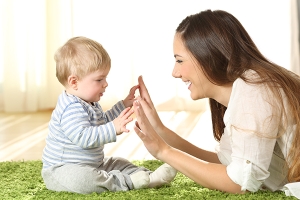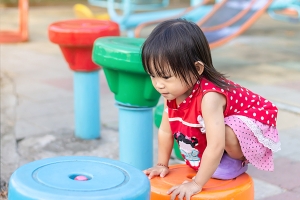
If there has ever been a time when we need to grow courageous kids, it’s now. From social media and screens big and small, to peer pressure and rapidly changing cultural norms, kids are growing up in a world filled with influences that pull at them nearly 24 hours a day.
As parents, we want to equip our kids with the courage and confidence they need to navigate these influences: The kind of courage it takes to not just go with the flow, but to step out of the norm when necessary; the confidence to keep making good choices as they grow. But how do we accomplish such a monumental parenting task and when should we begin? Growing courageous kids requires purposeful parenting, and it’s never too early or too late to start.
When my first child was born, I was full of optimism and determination to protect him from anything I considered a negative influence. I set about in earnest to shield him from sugar, too much TV and playing with toy guns. To my dismay, his grandmother introduced him to chocolate and ice cream before his second birthday. He learned all about the Teenage Mutant Ninja Turtles from his friends at preschool. Without ever having held a toy gun, at age 4 he carefully loaded kitchen utensils into his little boy belt and brandished wooden spoons, spatulas and ladles as imaginary weapons of choice.
As all first-time parents eventually realize, I was outnumbered. I came to understand that my attempts to shelter my son and later his younger sister and brother, were pretty puny and insufficient against forces beyond my control.
I learned that parenting from a position of fear doesn’t work. Teaching kids to confidently resist unhealthy influences and make good choices requires courageous and purposeful parenting. Here are three brave parenting moves that can help:
1. Step back.
I like helping people, so when I became a mother, I felt like I had hit the “helping” jackpot. Here were three small humans who needed me. I felt like a superhero when I could find solutions to stop them from crying or worrying or help them feel secure, safe and happy. What I didn’t realize was that every time I stepped in to fix something, an opportunity was lost for my child to gain confidence and grow problem-solving skills.
Learning to handle painful emotions, navigate uncomfortable situations or live with unpleasant consequences comes from experiencing these things, not from hearing about them and not by being rescued from them.
Just as parents must be willing to see kids fall and hurt themselves when learning to walk or ride a bike, we must be willing to step back and allow them to experience some of the pain that comes from hard things in life—things like disappointment, loneliness or being treated unfairly. The pain won’t stop them. They learn from it and grow stronger. Courage and confidence grow for the next time.
2. Lean in.
Leaning in means coming alongside kids and helping in new ways as they navigate the bumpy parts of life, not jumping in to solve something after a short time spent watching them struggle. It means parents staying the course with children by listening, sharing and hearing their concerns. Allowing time to mull over possibilities and uncover answers together.
It takes courage to lean in because parents must let go of the instinct to fix things. It means giving up the desire to be in control while staying connected and engaged, so kids still feel love and support. Leaning in without taking over can be H-A-R-D. But the fruit of this brave parenting move is this: kids learn to believe in their abilities, they feel respected and in turn, give respect to others. Their confidence grows as they learn and experience what it means to seek guidance and find answers.
3. Talk about what’s true.
Stepping back and leaning in is easier when we establish a habit of talking truthfully with kids about the realities of life. Difficult conversations can be tough for parents, especially when they involve unpleasant emotions like hurt, anger or disappointment. However, as we practice and grow in our ability to communicate truthfully, a wonderful thing happens. Parents and children both become better at talking about hard things. We learn to come together in humility, offering one another grace and compassion, as we discuss options and seek solutions.
It’s never too early or too late to begin modeling courageous living for children. When parents step back, lean in and talk truth, children grow stronger and more confident—and so do we.
What does purposeful parenting look like in your family? What moves are you making to nurture and grow courage in the hearts of your children? Share your comments at www.facebook.com/sandiegofamilymagazine.
Local blogger, Jody Lee Cates, writes about healthy relationships at www.jodyleecates.com
Published April 2018
------















